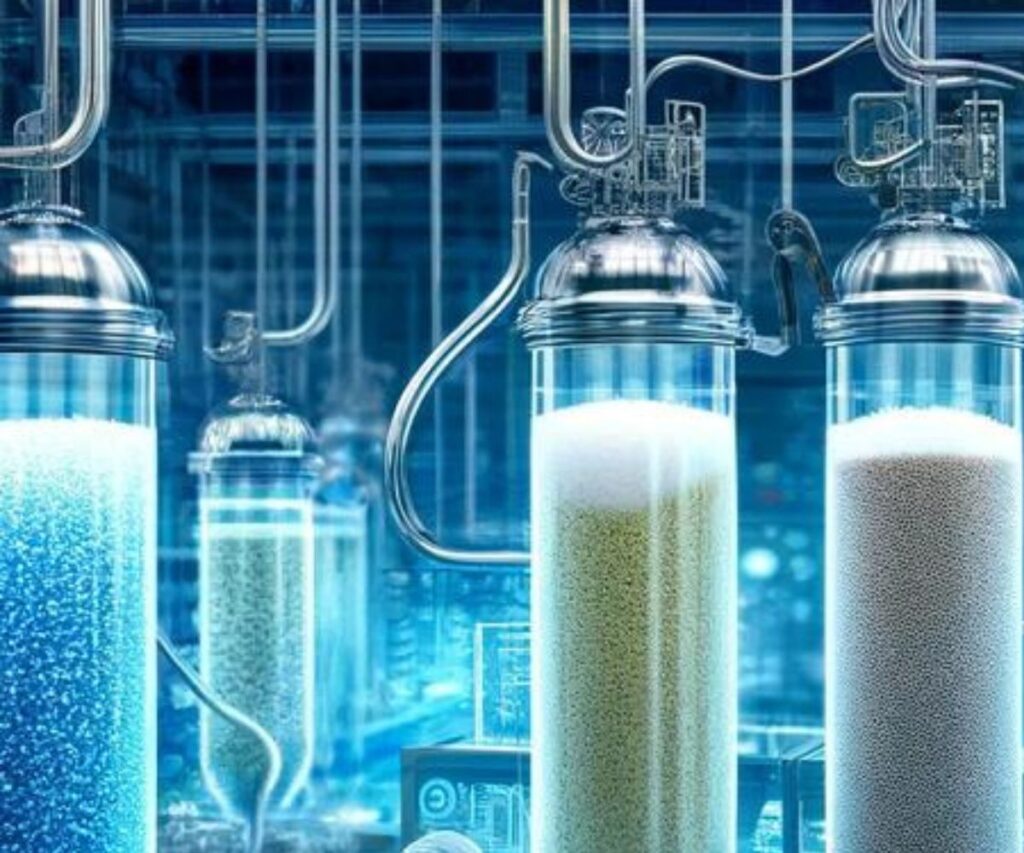Comparison Of Precision Fermentation Proteins To Conventional Plant-Based Alternatives

Comparing Precision Fermentation Proteins to Traditional Plant-Based Alternatives
In a world that’s increasingly focused on sustainable nutrition, precision fermentation is emerging as a promising innovation. This technology, which leverages the power of microorganisms, could transform how we produce proteins, offering a more efficient and environmentally friendly option.
However, traditional plant-based alternatives have long been the go-to for those seeking sustainable protein sources. These plant-based options, rooted in biodiversity and reliant on natural processes, remain a significant part of our efforts to create a more sustainable food system.
But how do these two approaches stack up in terms of health benefits, environmental impact, and consumer preferences? Let’s explore the differences.
Key Takeaways
- Precision Fermentation is seen as a sustainable alternative to traditional animal farming.
- Plant-Based Proteins are essential for sustainable nutrition but face challenges like monocultures and processing impacts.
- Food industry trends show significant investments in alternative proteins.
- Regulatory hurdles from organizations like the FDA and EFSA must be navigated for precision fermentation proteins to gain market access.
- Collaborative efforts between government, private sector, and scientific communities are crucial for advancing these technologies.
Understanding Precision Fermentation and Its Role in Alternative Proteins
As climate change becomes a pressing issue, the food industry is evolving. Precision fermentation, a sustainable innovation, is leading the charge in this transformation. Unlike traditional farming, which requires vast amounts of land and livestock, precision fermentation uses microorganisms to produce proteins efficiently. This method can significantly reduce the environmental footprint of protein production.
By engineering microorganisms, scientists can create proteins that are identical to those found in animal products. This process is not just a minor tweak; it’s a complete overhaul of how we produce protein. Compared to traditional methods, which have a substantial carbon footprint, precision fermentation offers a much greener alternative.
Defining Precision Fermentation and Its Significance
Precision fermentation combines biology and engineering to optimize microorganisms for protein production. These proteins are identical in taste and nutrition to their natural counterparts but are produced much more sustainably. This method drastically reduces the use of land, water, and energy, making it a promising solution for our growing food demands without compromising the environment.
The Science Behind Precision Fermentation
Precision fermentation involves genetic engineering to modify microorganisms like yeast or bacteria. These modified organisms can produce complex proteins such as casein or whey, traditionally sourced from dairy. Once engineered, these microorganisms are placed in bioreactors where they efficiently convert sugars into high-quality proteins. This process minimizes the environmental impact typically associated with livestock farming.
Comparing Precision Fermentation to Traditional Protein Sources
Traditional livestock farming requires significant resources, including water, feed, and land, and contributes to greenhouse gas emissions and animal welfare issues. In contrast, precision fermentation uses bioreactors to produce proteins with much less environmental impact. This method offers a more controlled and predictable process, reducing resource consumption and emissions.
Traditional Plant-Based Alternatives: An Overview
Traditional plant-based proteins, like legumes, nuts, seeds, and whole grains, have long been staples of sustainable nutrition. These plant-based options are rich in nutrients and provide essential amino acids. However, they sometimes lack the complete protein profile found in animal products and may require combining different sources to meet all nutritional needs.
Benefits and Limitations of Plant-Based Proteins
Plant-based proteins are generally healthier, offering fibers and essential nutrients. However, they can be limited in providing all essential amino acids, necessitating careful combination of different plant sources. While more sustainable than animal proteins, plant-based options can still have environmental drawbacks, such as monocultures and high processing impacts.
Key Players in the Plant-Based Protein Market
Companies like Impossible Foods, Beyond Meat, and Oatly are leading the charge in plant-based protein innovation. These companies are making significant strides in creating sustainable and tasty alternatives to animal products, helping to meet the growing demand for plant-based options.
Nutritional Value Comparison: Precision Fermentation Proteins vs. Plant-Based
Precision fermentation proteins offer a complete amino acid profile similar to animal proteins, while plant-based proteins require combining different sources to achieve this. Precision fermentation proteins often need enrichment to reach optimal vitamin and mineral levels, whereas plant-based proteins naturally contain a wide range of nutrients.
Environmental Impact: A Closer Look at Sustainability
Precision fermentation proteins have a lower carbon footprint compared to traditional plant-based proteins. They use less land and water, making them more sustainable. Traditional plant-based proteins, while better than animal proteins, still require significant resources and can contribute to environmental issues like soil depletion and high processing energy costs.
Consumer Acceptance and Market Trends
Consumer awareness of precision fermentation proteins is still growing, while plant-based proteins have a more established market presence. As more information becomes available, consumer perceptions are shifting. Both precision fermentation and plant-based proteins are seeing increased market growth and investment, driven by the demand for sustainable and healthy protein sources.
Technological Advances Driving Precision Fermentation
Technological innovations in precision fermentation are enhancing production efficiency and quality. Advances in genetic engineering, bioreactor design, and artificial intelligence are making it possible to scale up production and meet global protein demands sustainably.
Policy and Investment Landscape for Alternative Proteins
The success of alternative proteins depends on navigating regulatory hurdles and securing investments. Governments and private sectors are investing in research and development, supporting the growth of precision fermentation and plant-based proteins. These collaborations are crucial for advancing sustainable food technologies and achieving global food security.
Conclusion
Precision fermentation and traditional plant-based proteins each offer unique benefits and challenges. By understanding and comparing these approaches, we can make informed decisions about our protein sources and contribute to a more sustainable and healthy future.
Partner with LEC for Precision Fermentation Success
At LEC Partners, we are dedicated to helping businesses of all sizes achieve sustainable and successful outcomes. Whether you’re a startup or a multinational company, our community of world-renowned bioeconomy experts has the experience and expertise to guide you to success.
Why Choose LEC Partners?
- Unmatched Bioeconomy Expertise: As trusted leaders in the bioeconomy, we deliver sustainable and profitable results, guiding projects from planning to execution.
- Customized Teams: Your project is unique, and so is our approach. We assemble a custom team to meet your specific needs, whether you require one expert or many.
- Streamlined Communication: No matter the size of your project team, you will always have a single point of contact for seamless coordination and communication.
- Comprehensive Services: Beyond engineering, operational, and financial guidance, we offer additional services like regulatory support and expert witness testimony, to ensure you are covered from every angle.
Ready to Transform Your Precision Fermentation Business?
Take the next step and partner with us to shape the future of Precision Fermentation. Contact us today to learn how our community of over 180 bioeconomy experts can help you achieve your goals.
Have some questions?
Not sure where to start?
Let's start a conversation. We're here to help you navigate
the bioeconomy with confidence.

